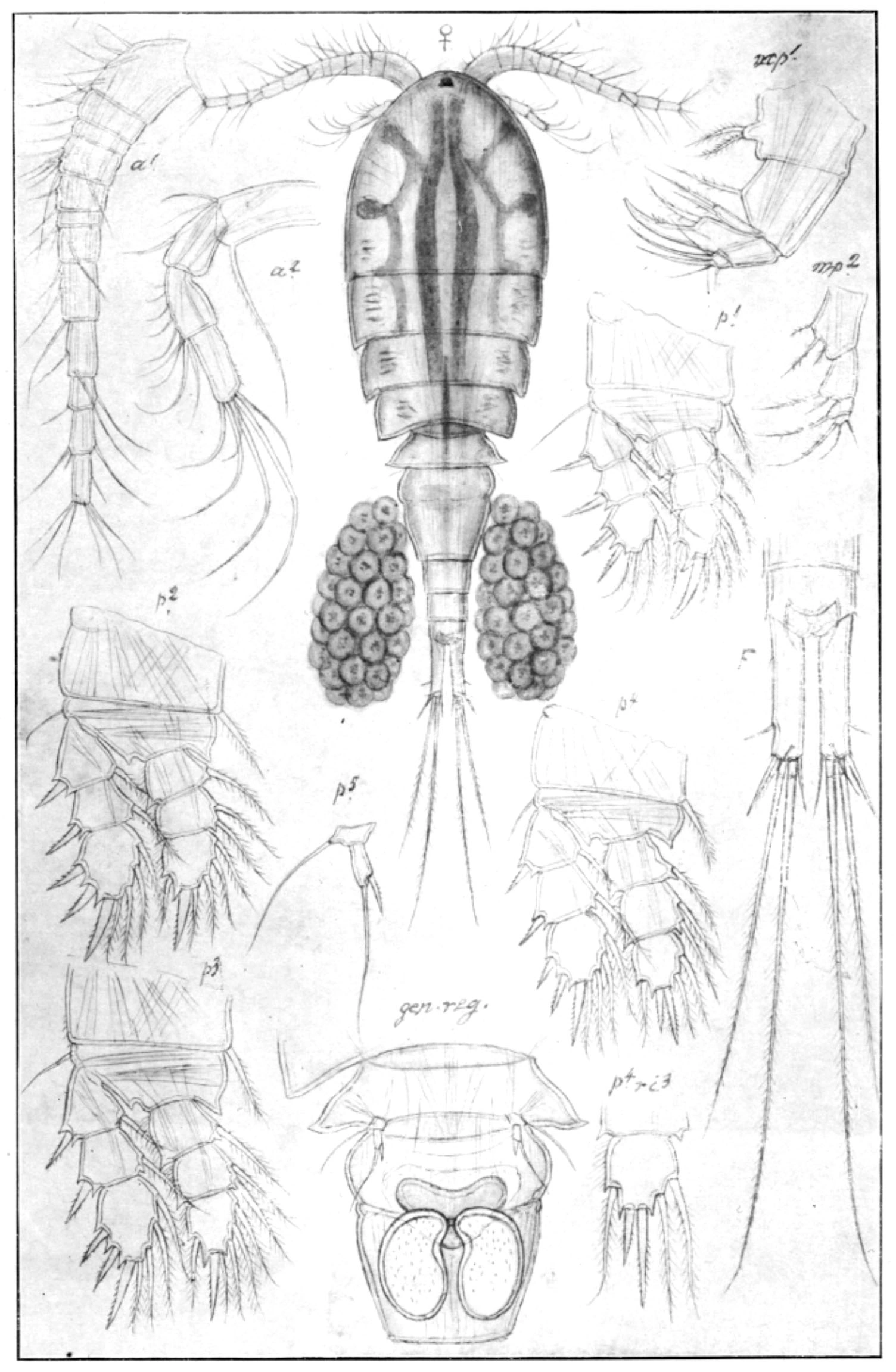Diacyclops crassicaudis
Diacyclops crassicaudis is quite rare in Norway and most records are from small ponds in the vicinity of Oslo. Its body has a compact form and it is the only Diacyclops species which have antennas that consists of 12 joints.
Key characteristics
Diacyclops crassicaudis (female)
Diacyclops crassicaudis has a compact form and the lateral division of the thorax is somewhat prominent. The last thorax segment is broad and on each side there is an acuminated projection pointing outwards. D. crassicaudis is the only Diacyclops species which have antennas that consists of 12 joints. The lateral seta of the furca is attached one third from the tip. Its colour is uniformly whitish grey.
Female: Length 0.9–1.1 mm
Male: Length 0.7–0.8 mm
Ecology and distribution
G.O. Sars sampled this species in 1863 from shallow ponds and ditches in Oslo. Later there have been a limited number of records, both from small ponds but also from the littoral of lakes. All are situated below 300 m a.s.l., mainly in the south-eastern parts of Norway, but there is also one record from the far north. The species seems to be tolerant to differences both in pH (4.4–7.6) and conductivity (1.5–93 mS/m).
| Vitenskapelig navn | < 4,5 | 4,5 - 4,9 | 5,0 - 5,4 | 5,5 - 5,9 | 6,0 - 6,4 | 6,5 - 7,0 | 7,0 - 7,4 | > 7,5 |
|---|---|---|---|---|---|---|---|---|
| 1 | 1,3 | 0 | 0,6 | 0,6 | 0,5 | 0,7 | 0,8 |
| Vitenskapelig navn | < 1,0 | 1,0 - 1,4 | 1,5 - 1,9 | 2,0 - 2,9 | 3,0 - 3,9 | 4,0 - 4,9 | 5,0 - 6,9 | 7,0 - 9,9 | > 10,0 |
|---|---|---|---|---|---|---|---|---|---|
| 0 | 0 | 0,4 | 0,7 | 0 | 0 | 0 | 0,9 | 4 |
| Vitenskapelig navn | < 0,01 | 0,01 - 0,09 | 0,1 - 0,9 | 1,0 - 9,9 | 10,0 - 99 | 100 - 999 | > 1000 |
|---|---|---|---|---|---|---|---|
| 2 | 3,5 | 0 | 0,2 | 0 | 0,8 | 0 |
| Vitenskapelig navn | < 100 | 100-299 | 300-499 | 500-699 | 700-999 | >1000 |
|---|---|---|---|---|---|---|
| 0,2 | 1,7 | 0 | 0 | 0 | 0 |
